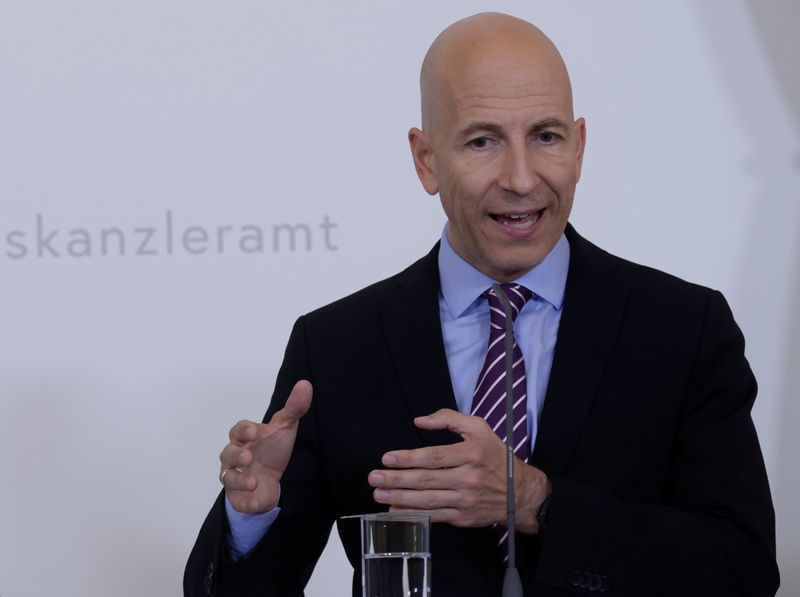By Francois Murphy and Alexandra Schwarz-Goerlich
VIENNA (Reuters) -Austria’s next central bank governor, behavioural economist Martin Kocher, is expected to be milder in public than his outspoken predecessor, although he has rebuked the Trump administration over threats to central bank independence.
Kocher, 51, will take office on Monday, succeeding Robert Holzmann, 76, who, in six years leading the Austrian National Bank, was repeatedly a lone dissenter in Frankfurt as the European Central Bank’s most hawkish Governing Council member.
While there are few clear clues about Kocher’s approach to monetary policy, he is seen as a safe pair of hands with experience both in academia and in government.
“I think his approach will be not to be all that outspoken, tending towards more of a hawk than a dove,” Bank Austria’s Chief Economist Stefan Bruckbauer said, referring to Austria and Germany’s general tradition of conservatism in monetary policy.
“He is definitely qualified for the job and has the required background to grasp the complexity of all the decisions that a central bank must take.”
Kocher, a marathon runner whose personal best is just over three hours, left his post at the head of the Institute for Higher Studies economic think-tank in 2021 to enter a previous government under the conservative People’s Party (OVP).
The OVP nominated him for the job of governor and he was confirmed last summer. Holzmann had been nominated by the far-right Freedom Party under a previous coalition with the OVP.
Kocher made few waves as minister and left government after his confirmation for the central bank post. One of his few recent public pronouncements relevant to his future job was a blog posting in July entitled “Washington – get a grip!” criticising the Trump administration for undermining the Federal Reserve’s independence and increasing economic uncertainty.
“It is violating the independence of the Federal Reserve – not through constant criticism of its monetary policy (which is, of course, permissible), but through institutional considerations based on dubious legal arguments and with the clearly stated desire to reduce the U.S. national debt,” he wrote.
“Central bank independence includes a duty to point out how dangerous it is when that independence is undermined.”
(Writing by Francois MurphyEditing by Peter Graff)
